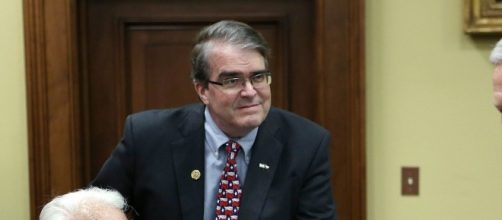The organizers of the so-called “March for Science” gained an unexpected supporter, according to Science Magazine, in the form of Rep. John Culberson, R-Texas, the chairman of the appropriations subcommittee that controls most federal science spending, including NASA. When told about the March, the conservative, Republican congressman offered enthusiastic support.
“I think it’s a great idea, it’s essential that scientists and engineers organize and speak up and be heard. One of the fundamental problems that the scientific community has had over the years is a reluctance to get engaged in political campaigns and the legislative process.”
Culberson may not be aware that the primary motivation for the March for Science is not, strictly speaking, to promote science, but rather to campaign about climate change.
The idea is that politicians such as Culberson are not listening to the “settled science” of climate change and need to be told by scientists and their supporters as they pour out into the streets. The event is to take place on Earth Day, an annual occasion for humans to flagellate themselves over what their existence has done to Mother Earth and to make promises to do better.
Culberson is a good friend of science and is a special friend of NASA, including even programs that do not benefit his district near the Johnson Spaceflight Center. The congressman is a driving force for the mission to Europa, which would be run out of the Jet Propulsion Laboratory in California. However, owing to the fact that he comes from Texas, an oil and gas state, Culberson will be considered an enemy of the March on Science.
He is likely a climate change “denier.”
Culberson also had some advice to the marchers which, while stemming from reality, is likely to fall on deaf ears.
“If they want to protect research and space exploration, they have to insist that members of Congress reverse the looming bankruptcy of Social Security and Medicare and Medicaid. Those mandatory programs are devouring a larger share of annual federal revenue. If we don’t address this financial crisis, there won’t be any money for science.”
Culberson is pointing out the inconvenient truth that entitlement programs, whose spending levels are handled automatically, is increasingly crowding out the rest of the federal budget, which includes science and space spending.
The participants of the March for Science would do well to listen to the congressman’s wisdom. They are not likely to, though. Not a lot of physicists and biologists have expertise in economics and politics.

